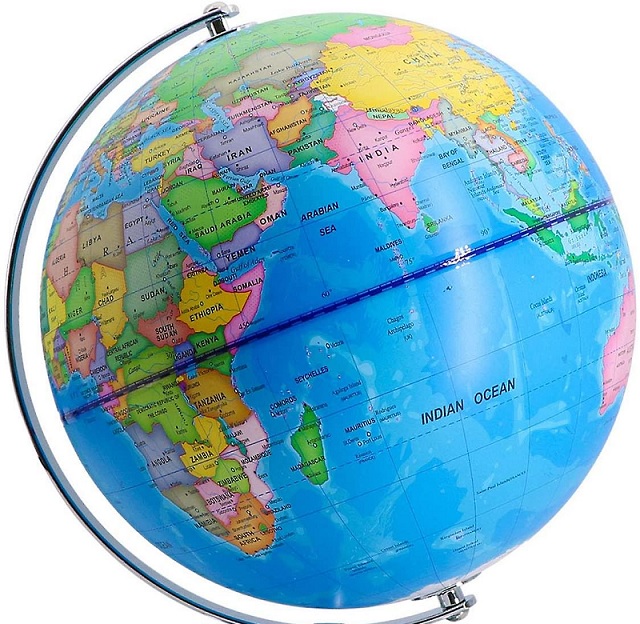
How good institutions become dysfunctional in heterogenous countries with deep interethnic divisions
THE LAST WORD | Andrew M. Mwenda | Last week, a friend sent me a long dissertation about Why Nations Fail: The Origins of Power, Prosperity and Poverty, a book by James Robinson and Daron Acemoglu. Why Nations Fail is a book beloved by many including seven Nobel laureates in economics who endorsed it. It is also a book I found hopelessly out of depth when it comes to discussing economic development. Its concluding chapter (in the initial version) reflects the core argument of the book, but equally the authors’ inability to develop a broad perspective about the multifaceted nature of the process of economic transformation: “Institutions, Institutions, Institutions.”
“Seek ye first the kingdom of God,” Jesus said, “and the rest will be added onto you.” Seek ye first good institutions, Robinson and Acemoglu argue, and the rest will be added unto you. They dismiss geography, culture, etc. as bogus. I have demonstrated in this column before how that argument is misleading, using the very same examples the authors used. In this column I will deal with the critical prerequisite for development – political stability. This article, therefore, is a conversation with my friend that I have decided to share with the public.
It really doesn’t matter what your culture, geography, institutions, policies, etc. are. If you are politically unstable (you lack a state that can ensure basic order like Somalia, Central Africa Republic, South Sudan, Sudan, Democratic Republic of Congo, Afghanistan, etc.) you cannot develop. Of course, you can have political stability without development. Why? You may be situated in a neighborhood where many of your neighbors are at war (like Chad) or are geographically isolated in some remote mountainous region (like Bhutan) or you have bad policies (like Julius Nyerere’s Ujama policies that wrecked Tanzania), or your people are tied to cultural beliefs antithetical to capitalist accumulation.
But political stability, the ability of the state (to use Max Weber’s expression) to monopolize the legitimate use violence, is the primary basis upon which everything rests. And this “everything” includes good institutions and policies, freedom and democracy, etc. Without political stability, a strong state able to enforce law and order and to ensure the sanctity of life and property, nothing else is possible. And this is where the process of economic development gets complicated. Why? Because the creation and maintenance of a stable political order requires many complicated tradeoffs.
Leaders must make difficult compromises and concessions to placate the often-conflicting and contradictory interests of different powerful elites. They may also have to suppress certain groups and interests using the repressive instruments of the state. How a leadership balances these carrots and sticks varies from place to place and epoch to epoch. The nature of institutions is therefore a product of this grand bargain. In some countries the compromises and concessions necessary to placate the interests of the often rowdy, divided, noisy, conflicting elites may result in political institutions and public policies that undermine development.
I had been chewing on this idea for many years when I read a book by the Nobel laureate in economics, George Akerlof, and Rachel Kranton, titled Identity Economics: How our Identities Shape our Work, Wages and Wellbeing. There is the story of Hamilton High School in upstate New York. In the 1950s it was a preeminent school, excelling in both sports and academics and was a preserve of the top elite of US society. And in Jim Crow USA (America’s own version of apartheid), it was a whites-only school.
The school had authoritarian rules that ensured discipline and cohesion. Their strict enforcement was responsible for the school’s excellence in academics and sports. Consequently, they created a particular culture. White students [and their parents] admired these rules. Rather than feel oppressed by their strict enforcement, students took pride in them as part of their culture that made them distinct and successful. This is identity at work: to be a student at Hamilton made you feel special and set you apart from others. It conferred upon you a specific identity as a member of a privileged elite group. What an outsider would have seen as despotism, the students (and their parents) saw as a source of their pride and identity.
Then came the civil rights movement. Schools had to be desegregated. So, Hamilton High was forced to admit black students. However, the black students who came to Hamilton did not share in its culture, which they felt was “too white”. They found its rules rigid and their strict enforcement intolerable. This led to constant friction. Hamilton High found itself at war with itself. Strikes became part of daily life at the school. Consequently, the school had to be closed many times in a year. This meant students could not study and therefore not excel in sports and academics as they used to.
Those in charge at Hamilton changed the administration. The new head teacher realized that for the school to function in its new multiracial character, it had to accommodate the interests, mentalities and culture of the black students. He lessened and loosened the rules. All of a sudden, trikes disappeared. Now students could study in peace. But this peace came at a price of declined academic and sports performance. Yet the students had not changed. Excellence in academics and sports had been a result of its identity, an identity shaped around the strict and rigid enforcement of the rules.
The story of Hamilton High School finds parallels in the politics of many ethnically heterogenous societies with deep divisions. Most of these societies have no history of a shared national consciousness. Leaders need to ensure a stable political order first. So, they placate the interests of powerful ethnic, religious and other elites by giving them favors and other compromises and concessions. They can use force to get their way. But force alone is insufficient to keep everyone inline. In fact, it can be counterproductive as some groups may take to armed resistance. In this scenario, a leader may find themselves saddled in endless armed conflicts and therefore no resources or time to devote to social-economic transformation.
Like Hamilton High, attempts to implement policies and institutions that ensure rapid development may lead to civil conflict, a factor that will undermine the development that is sought. To ensure a stable political order in ethnically divided countries, the tradeoff may be slowed development. My former lecturer at the University of London, Mushtaq Khan, has an interesting insight into this challenge, and I will return to him next week.
*****

amwenda@independent.co.ug
 The Independent Uganda: You get the Truth we Pay the Price
The Independent Uganda: You get the Truth we Pay the Price



Hi out of curiosity, how can political stability exist without institutions?
No courts, no army, no police etc to resolve conflicts.
1.But really who is coming up with these idea?There is no guarantee that once your neighbour is insecure then you cant develop,Israel is surrounded by failed states how come she is outstanding?
2.Africa missed out economically during the first industrial revolution now we are in the 4th revolution . So where does this leave Africa?We are lucky that we dont need to think hard because the first world has made life easy for us i mean we have acess to machinery,ICT,Banks,Education,Trade so for real what is our problem?
3.Trade unions were established as a result of workers over working during the industrial revolution in the long run; the whites had to endure alot to make life better.
4.In Uganda for example; we are more obessed with good pratices like democracy,procurement rules yet they were introduced in the now first world later after they had developed their science and technology.So why is Africa under so much pressure to be a good girl but when it comes to key issues like trade we are sidelined and blackmailed with democracy which is now now a luxury.
5.The recent killings of prominent Ugandans is easy to control because the tactics that the hitmen use are the same.They have a list of people they want to bump off really cant intelligence just study the movements of prominent Ugandans and trace who is trailing them?It can take even 6 months to monitor person x and tell who is following them.